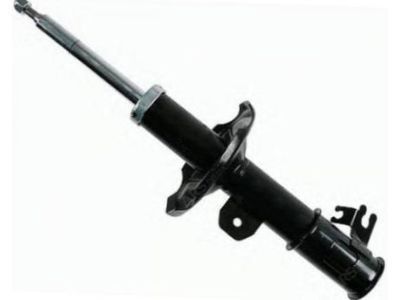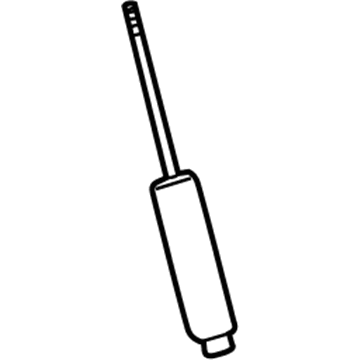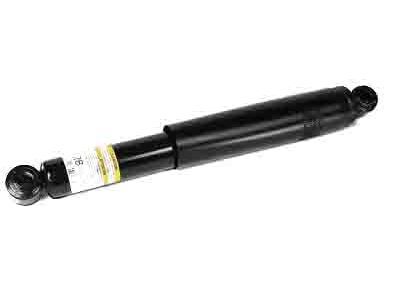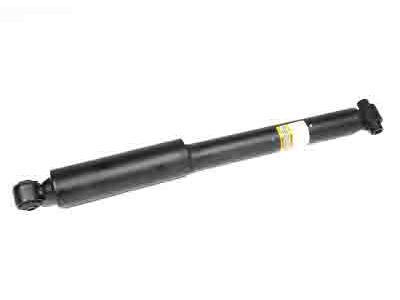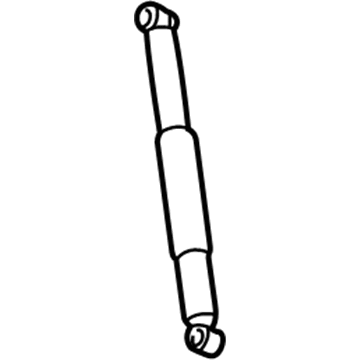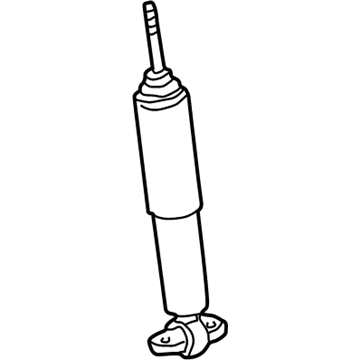ChevyParts
My Garage
My Account
Cart
OEM 2005 Buick Rainier Shock Absorber
Suspension Shock Absorber- Select Vehicle by Model
- Select Vehicle by VIN
Select Vehicle by Model
orMake
Model
Year
Select Vehicle by VIN
For the most accurate results, select vehicle by your VIN (Vehicle Identification Number).
3 Shock Absorbers found

2005 Buick Rainier Shock Absorber, Front Part Number: 15098727
$120.98 MSRP: $227.20You Save: $106.22 (47%)Ships in 1-2 Business DaysProduct Specifications- Other Name: Absorber, Front Shock; Suspension Strut and Shock Assembly Kit; Air to Coil Spring Conversion; Complete Strut Kit.; Strut
- Position: Front
- Item Weight: 4.00 Pounds
- Item Dimensions: 30.4 x 9.5 x 9.0 inches
- Condition: New
- SKU: 15098727
- Warranty: This genuine part is guaranteed by GM's factory warranty.

2005 Buick Rainier Shock Absorber Part Number: 25820699
Product Specifications- Other Name: Shock; Absorber, Front And Rear Suspension
- Position: Rear
- Replaces: 15159645, 15172343, 15206892, 15894447, 15172340, 25865982, 25820694, 15159648, 15172342, 15894449, 15894448, 25820695
- Item Weight: 3.20 Pounds
- Item Dimensions: 28.0 x 4.3 x 3.8 inches
- Condition: New
- Fitment Type: Direct Replacement
- Require Quantity: 2
- SKU: 25820699
- Warranty: This genuine part is guaranteed by GM's factory warranty.
2005 Buick Rainier Shock Absorber Part Number: 88965472
Product Specifications- Other Name: Absorber Kit, Front Shock; Suspension Shock Absorber; Link; Absorber Kit, Front And Rear Suspension; Shock
- Position: Front
- Item Weight: 3.80 Pounds
- Item Dimensions: 26.3 x 4.5 x 3.5 inches
- Condition: New
- Fitment Type: Direct Replacement
- Require Quantity: 2
- SKU: 88965472
- Warranty: This genuine part is guaranteed by GM's factory warranty.
2005 Buick Rainier Shock Absorber
With a comprehensive array of OEM 2005 Buick Rainier Shock Absorber, from fuel pumps to door handles, our website is a one-stop-shop for your needs. All our genuine 2005 Buick Rainier Shock Absorber are backed by the manufacturer's warranty and are offered at competitive prices in the market. Rest assured, you can shop with complete confidence.
2005 Buick Rainier Shock Absorber Parts and Q&A
- Q: How to Replace a Shock Absorber Module on 2005 Buick Rainier?A: The first step to replace the shock module requires removing its upper retaining nuts. After support and vehicle elevation you need to maintain cautious coil spring handling because improper contact might degrade the surface finish which shortens element longevity. Begin by slipping out the tire and wheel from the vehicle. Subsequently loosen the shock module yoke retaining nut on the lower Control Arm using the ball joint separator (J 36607) to pry the shock module yoke away from its position in the lower Control Arm. The ball joint separator (J 36607) and retaining nut must be removed first to access the shock module inside the shock tower and lower Control Arm. To install the shock module begin by inserting it into its proper position on the shock tower and lower Control Arm then fasten the shock module yoke to the lower Control Arm. Lower the vehicle before installing upper shock retaining nuts to a torque setting of 45 nm (33 ft. Lbs.). After raising the vehicle reinstall the shock module yoke to lower Control Arm retaining nut and achieve a torque setting of 110 nm (81 ft. Lbs.). The last step involves putting the tire and wheel back into position followed by vehicle lowering.
